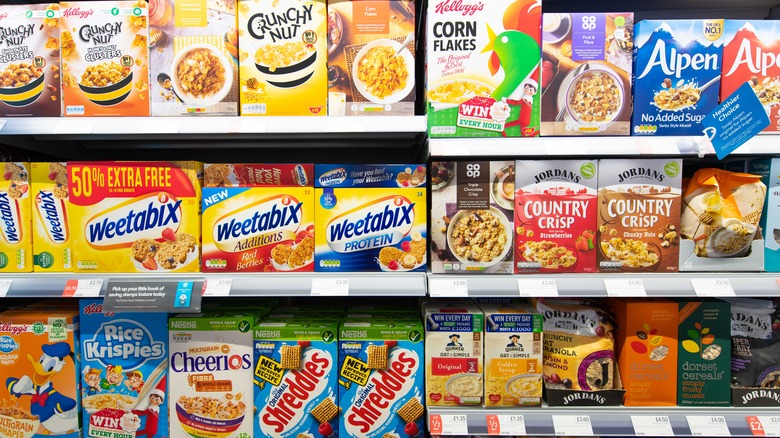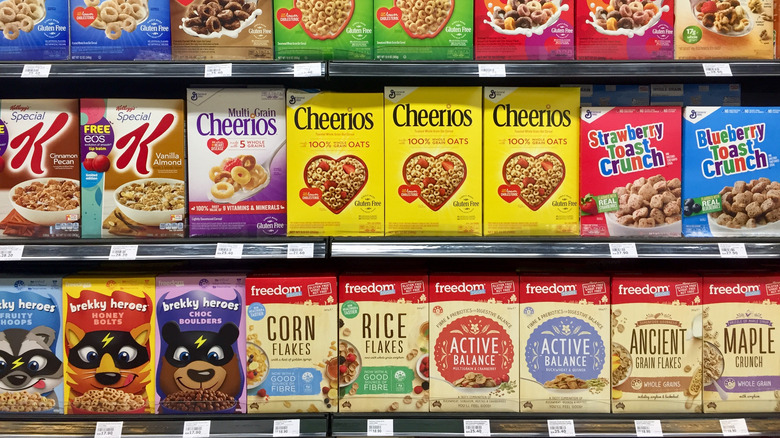The Big Change Coming To These 'Healthy' Cereal Boxes
Lots of breakfast options such as cereal and granola boxes are often marketed as healthy food options to shoppers. The problem is that the truth is rarely as simple as it seems, and there are lots of facts that are either left out of the equation or simply ignored. As per Healthline, plenty of cereal brands are filled with added sugar and are heavily processed, which means that consumers aren't aware of the full story and may assume that their bowl of breakfast cereal is more nutritious than it actually is.
In fact, some of these brands go as far as to claim that their products are full of whole grains, which is not always the case. While it's true that they may have a certain amount of whole grains, it's also likely that they have more refined carbs than most consumers realize. On that note, a group of lawyers recently proved that certain cereal brands have misleading claims attached to their brands, according to Baking Business.
Examine the claims carefully
As reported by Food Business, the lawsuit took around four years to reach a conclusion. The court recently ruled that the lawyers involved in the case were entitled to $5.5 million. Why? Well, Judge William H.Orrick felt that it was important for Post Consumer Brands to stop relying on misleading terms like "wholesome," "smart," "no high-fructose corn syrup," and "nutritious" for its cereal products that get at least 10% of the calories from sugar. These terms may end up confusing their consumers who think they're making smart choices. The brands involved in this case included products such as Post Selects, Honey Bunches of Oats, Great Grains, Shredded Wheat, and more.
Again, this is crucial on account of the fact that shoppers are often inclined to buy cereal boxes based on the claims that they see advertised on the products. Consumers may not realize what they're getting into. Also, as pointed out by Healthline, many breakfast cereal companies may try to reach out to kids and advertise their products as healthy food choices that may not necessarily be the case.

